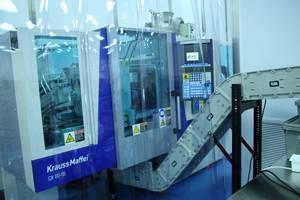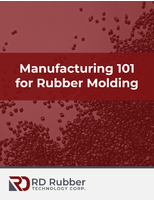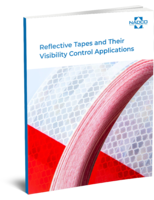Injection Molding Calibration for Plastic Components

The art of making identical parts with injection molding lies in either the process or the machine set up sheet. The funny thing is, how hard it is to find two of them that are identical.
From run to run, injection molding parts need to be identical. The scope of what identical means can actually change from industry to industry for example aviation and medical field parts have different standards for identical than flower pots or drink coasters.
At the center of every attempt for reaching "identical" is the process or the machine set up sheet. Set up sheets are for documenting your process variables. Identical is accomplished when the specifications for machine, molds and resin processes are worked so the variables can be managed properly.
The processor for injection molding has to deal with hundreds of variables. Variables can include moisture content of the materials or the temperature of the melt. To make parts identical requires a way to guarantee that the process variables are controlled so they can be held in a stable and reasonable tolerance.
This makes it mandatory to set up processes by inputting the correct process set points which makes it possible to achieve specific process conditions. The important factors rely on temperatures, injection rates, pressures, and cooling rates.
This industry isn't in agreement about which injection molding process variables are necessary to control, either. When using only one process setup sheet per mold whatever you input into the machine controller, regardless of temperature, time, pressure, etc- the machine will provide it accurately and inside reasonable balance.
One Approach Could Be, Look At It From The Plastics Point Of View
Scientific Molding Principles do not recognize barrel temperatures as an indication of the plastic melt temperature. As a general rule, 20% of the heat energy required to melt the plastic is generated by the barrel heaters, the other 80% is from the mechanical shear created by machine settings and the screw and barrel combination. True plastic melt is verified by taking the machine off cycle, injecting the next shot out and checking the temperature.
Load Sensitivity Tests can be performed on injection molding machines to determine their performance during the fill phase. The test uses the machines Fill Time and Injection Pressure in the formula to determine how well it performs. The accuracy and repeatability of today's molding machines is phenomenal due to the speed and power of computers and the sophistication and complexity of the electronics that control them. With that said the cars we drive and the computers we use everyday are just as complex and we all know that they either work or they do not work.
Scientific process development targets a 95 to 99% fill only part, which when established is weighed and documented. The time it takes the machine to do this is called the Fill Time. The main machine settings are shot size needed, injection velocity used and the velocity to pressure transfer point. In Scientific Molding this is also known as the plastic flow rate and one of the Four Plastic Variables. This also verifies the machines fill timer due to the scientific fact that plastic is Non-Newtonian. Non-Newtonian dictates as the flow rate (Fill Time) changes the viscosity of the plastic changes and this effects the fill only part. That will also affect the other phases of the systematically established scientific process, like pack pressure, hold pressure effects, gate seal, cosmetics etc.
At Crescent we utilize scientific injection molding principles throughout our process development phase that is documented on our process setup sheet. Verification of the documented process setup sheet "machine inputs" during production runs are accomplished by measuring the "machines output" which are the parts with calibrated equipment external of the molding machine.
For more information on Crescent Industries services and capabilities, please visit our website www.crescentind.com or call Toll Free: 1-800-411-3844




